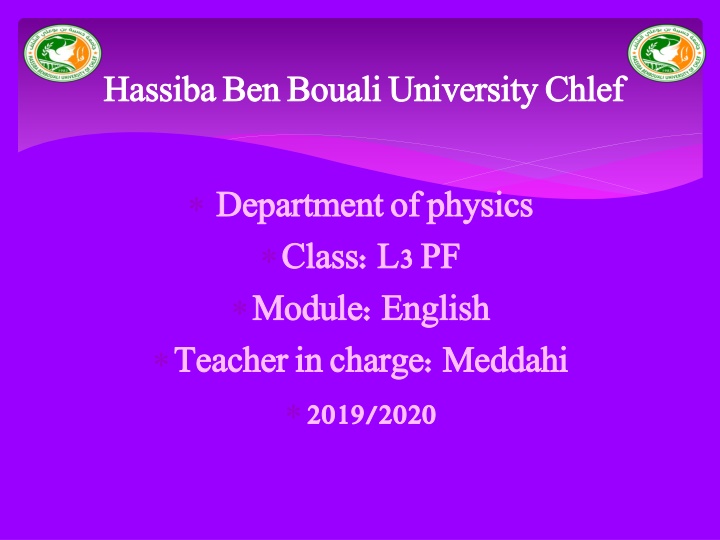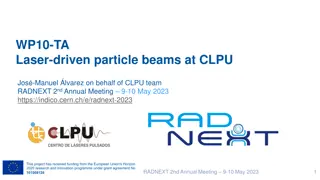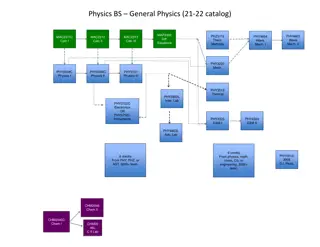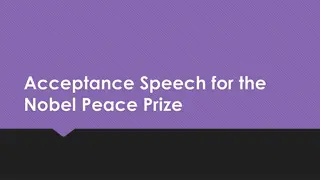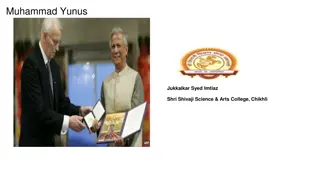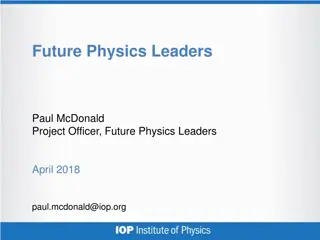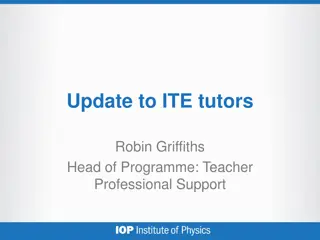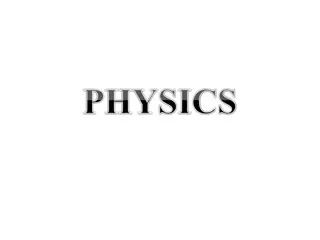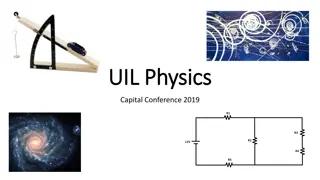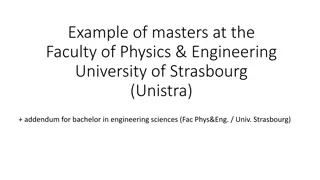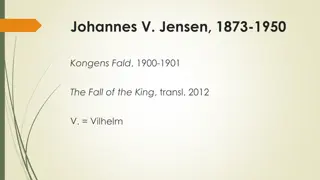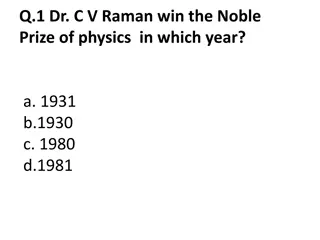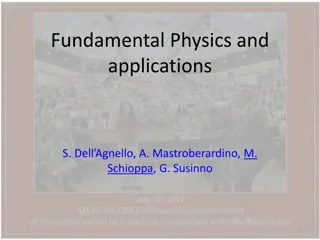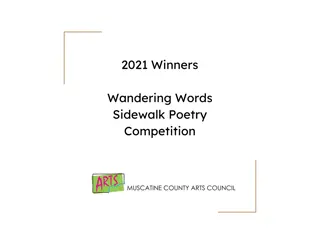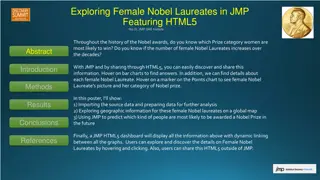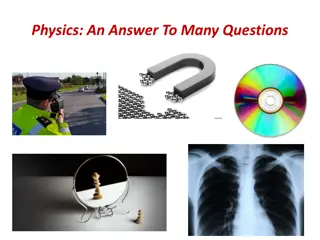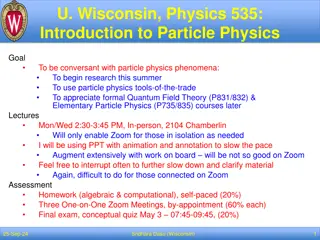Nobel Prize Winners in Physics Since 2010
Explore the recipients of the Nobel Prize in Physics from 2010 onwards, including their remarkable contributions to the field, such as discoveries in gravitational waves, neutrino oscillations, and groundbreaking inventions in laser physics. Understand the significant impact of their work on our understanding of the universe and scientific research success.
Download Presentation

Please find below an Image/Link to download the presentation.
The content on the website is provided AS IS for your information and personal use only. It may not be sold, licensed, or shared on other websites without obtaining consent from the author.If you encounter any issues during the download, it is possible that the publisher has removed the file from their server.
You are allowed to download the files provided on this website for personal or commercial use, subject to the condition that they are used lawfully. All files are the property of their respective owners.
The content on the website is provided AS IS for your information and personal use only. It may not be sold, licensed, or shared on other websites without obtaining consent from the author.
E N D
Presentation Transcript
Hassiba Ben Bouali University Chlef Hassiba Ben Bouali University Chlef Department of physics Department of physics Class: L3 PF Class: L3 PF Module: English Module: English Teacher in charge: Meddahi Teacher in charge: Meddahi 2019/2020 2019/2020
LESSON NOTES Noble prize winners in physics since 2010
LESSON OBJECTIVE Students to have ideas about major themes that head to the front of success, in the field of scientific research.
The Nobel Prize in physics 2019 It was awarded for contributions to our understanding of the universe evolution and earth s place in the cosmos for discoveries in cosmos physics with one half to james peebles and another to Michel mayor for discovering exo planet
The Nobel Prize in Physics 2018 for groundbreaking inventions in the field of laser physics Arthur Ashkin for the optical tweezers and their application to biological systems G rard Mourou and Donna Strickland for their method of generating high-intensity, ultra-short optical pulses
The Nobel Prize in Physics 2017 Rainer Weiss, Barry C. Barish and Kip S. Thorne for decisive contributions to the observation of gravitational waves The Nobel Prize in Physics 2016 David J. Thouless, F. Duncan M. Haldane and J. Michael Kosterlitz for theoretical discoveries of topological phase transitions and topological phases of matter
The Nobel Prize in Physics 2015 Takaaki Kajita and Arthur B. McDonald for the discovery of neutrino oscillations, which shows that neutrinos have mass The Nobel Prize in Physics 2014 Isamu Akasaki, Hiroshi Amano and Shuji Nakamura for the invention of efficient blue light-emitting diodes which has enabled bright and energy-saving white light sources
The Nobel Prize in Physics 2013 Fran ois Englert and Peter W. Higgs for the theoretical discovery of a mechanism that contributes to our understanding of the origin of mass of subatomic particles The Nobel Prize in Physics 2012 Serge Haroche and David J. Wineland for ground- breaking experimental methods that enable measuring and manipulation of individual quantum systems
The Nobel Prize in Physics 2011 Saul Perlmutter, Brian P. Schmidt and Adam G. Riess for the discovery of the accelerating expansion of the Universe through observations of distant supernova The Nobel Prize in Physics 2010 Andre Geim and Konstantin Novoselov for groundbreaking experiments regarding the two- dimensional material graphene
ESSAY WRITING PROCESS Prepare an outline or diagram of your ideas. Write your thesis statement. Write the body. Write the main points. Write the sub points. Elaborate on the sub points. Write the introduction. Write the conclusion. Add the finishing touches.
Essay structure Introduction - The focus of the essay. - The thesis statement : one sentence to show the points that you are going to discuss in the essay
Body paragraphs - Topic sentence : general idea about the paragraph. - Supporting details: examples or evidence or analysis. - Concluding sentence: closing idea X 3
Conclusion - Restate thesis - Summarize
Assignment Choose one Nobel prize winning themes, make a research and write an academic essay about it.
Clarification Write an introduction to the Nobel winning theme that you have chosen. Answer the following questions in the body paragraphs ( one paragraph for each question) -How was the research made ? - -what are the main ideas of that winning theme? - -what are the benefits of the research theme for the world of physics? Conclusion .
CONDITIONS 1. Try to follow the criteria of academic essay writing 2. Organization and cohesion 3. Works to be done individually 4. Group works will be refused 5. Papers after the submission date will be refused 6. Identical works will be refused 7. After finishing your research and essay, include a final part in which you write a glossary of new words that you learned about the topic.
Evaluation norms (12 P ) for the content. (08 P) for organization, creativity and originality.
The research papers to be submitted at the administration of the department 04/10/2020 and 05/10/2020 Teachers email: radhiasky@gmail.com
